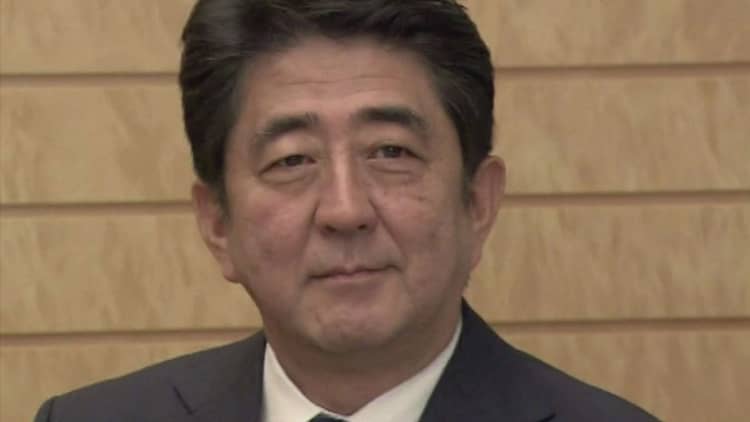
Japan's core machinery orders unexpectedly fell for a second straight month in May as the strong yen and weak demand weighed on corporate profits and spending, pointing to a tepid recovery in the business investment needed for sustainable growth.
Cabinet office data published on Tuesday showed a 1.4 percent fall in core orders, a highly volatile data series regarded as an indicator of capital spending in the coming six to nine months, and fell well short of economists' forecast for a 2.6 percent gain in Reuters poll.
Weak capital expenditure puts extra pressure on Prime Minister Shinzo Abe to do more to rev up growth. He is expected to compile an economic stimulus package later this year after his ruling bloc won a landslide victory in Sunday's upper house election.
Abe has been counting on capital expenditure to help generate a virtuous growth cycle of higher wages and increased household income and consumption to drive growth.

Britain's shock vote last month to exit the European union further clouds the outlook as it pushes up the safe-haven yen and chills sentiment among Japanese exporters.
"Machinery orders are likely to weaken ahead rather than to recover. The ill-effects of a rising yen in the wake of Brexit are expected to emerge from now on," said Koya Miyamae, senior economist at SMBC Nikko Securities. "There are few factors that would make us optimistic about the outlook for machinery orders and capital spending."
The Cabinet Office cut its assessment of machinery orders to say they were stalling. Its previous assessment saw a pickup in orders.
Policymakers are in a bind, with companies hesitant to boost investment as they struggle with a weak economy and a strong currency, while the Bank of Japan's adoption of negative rates failed to convince companies to invest more.
Compared to the previous month, orders from manufacturers fell 6.4 percent, while those from the services sector dropped 0.3 percent, the data showed.
Compared with a year earlier, core orders, which exclude those of ships and electrical equipment, decreased 11.7 percent in May versus an expected 8.7 percent drop, the data showed.

